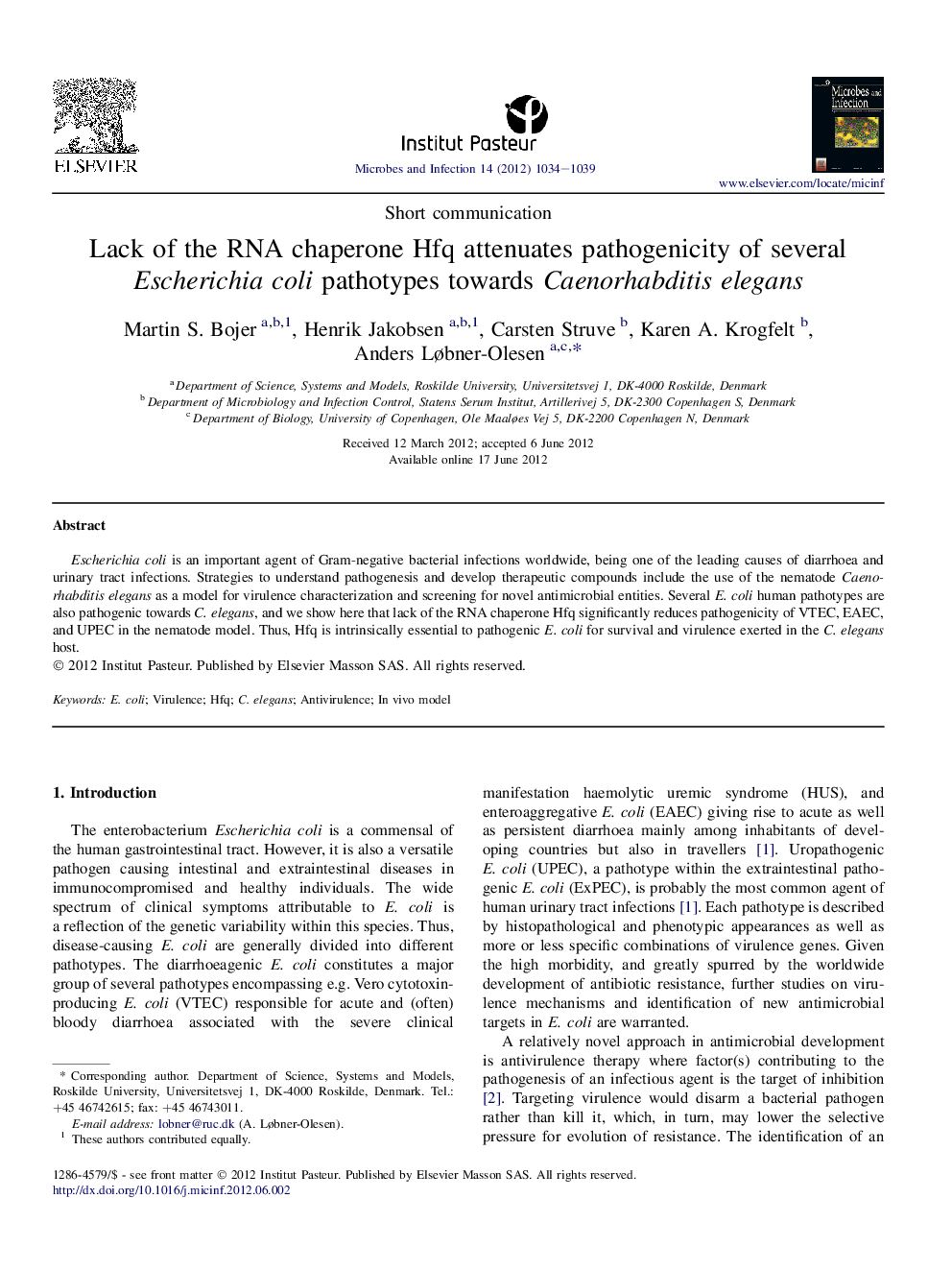| Article ID | Journal | Published Year | Pages | File Type |
|---|---|---|---|---|
| 6135779 | Microbes and Infection | 2012 | 6 Pages |
Abstract
Escherichia coli is an important agent of Gram-negative bacterial infections worldwide, being one of the leading causes of diarrhoea and urinary tract infections. Strategies to understand pathogenesis and develop therapeutic compounds include the use of the nematode Caenorhabditis elegans as a model for virulence characterization and screening for novel antimicrobial entities. Several E. coli human pathotypes are also pathogenic towards C. elegans, and we show here that lack of the RNA chaperone Hfq significantly reduces pathogenicity of VTEC, EAEC, and UPEC in the nematode model. Thus, Hfq is intrinsically essential to pathogenic E. coli for survival and virulence exerted in the C. elegans host.
Related Topics
Life Sciences
Immunology and Microbiology
Immunology
Authors
Martin S. Bojer, Henrik Jakobsen, Carsten Struve, Karen A. Krogfelt, Anders Løbner-Olesen,
